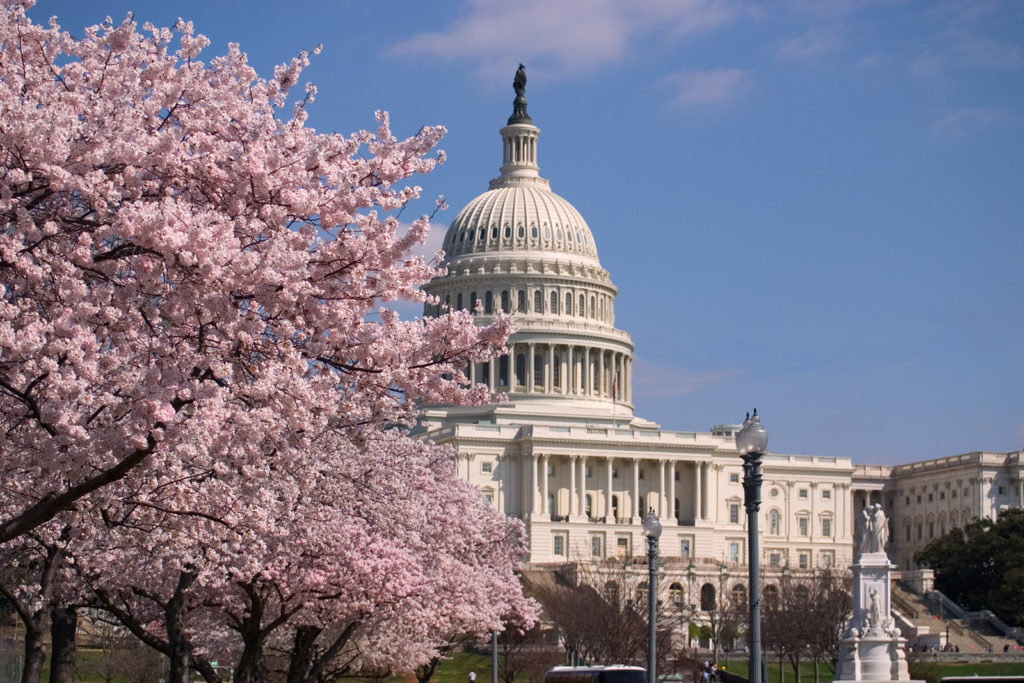
Updated: March 26, 2021
A bipartisan group of congressional leaders revived NRECA’s top legislative priority Thursday by reintroducing a bill that could save electric cooperatives more than $10 billion in interest payments on their federal loans.
Lawmakers hope to insert the Flexible Financing for Rural America Act into a sweeping economic recovery and infrastructure investment package that Congress develops later this year. The bill would allow electric co-ops to reprice loans from the U.S. Department of Agriculture’s Rural Utilities Service at current low interest rates without being hit with prepayment penalties.
The bill is key to helping co-ops recover from the economic battering brought on by COVID-19. The pandemic tanked demand for electricity by commercial and industrial co-op members struggling to survive downturns in the oil, agricultural and tourism industries. It also left many residential consumer-members unable to pay their electric bills because of lost jobs and other financial hardships.
NRECA economists have estimated that co-ops could lose up to $10 billion in revenue through 2022 as a result of the pandemic.
The bill was originally introduced last July by Reps. Tom O’Halleran, D-Ariz., and Vicky Hartzler, R-Mo., and Sens. Tina Smith, D-Minn., John Hoeven, R-N.D., Kyrsten Sinema, D-Ariz., and John Boozman, R-Ark. Despite attracting 24 co-sponsors in the Senate and 126 in the House, the bill wasn’t considered during the last congressional session. The same lead Senate sponsors reintroduced it Thursday, and O’Halleran and Hartzler reintroduced it in the House on Friday.
“Many electric co-ops and their consumers are hurting as COVID-19 continues to bring health and financial hardships to rural communities,” said NRECA CEO Jim Matheson. “Congress can provide substantial relief to millions of electric co-op members simply by letting co-ops do what other businesses already can do—refinance their debt at today’s low interest rates without a prepayment penalty. Every dollar co-ops save means more money in consumers’ pockets.”
The new interest rate available to co-ops would be the U.S. Treasury rate that most closely matches the remaining term on the loan being refinanced. Co-ops would receive that rate starting on the date they notify the USDA of their repricing request.
NRECA estimates that about 500 co-ops could realize a total net savings of $10.1 billion from repricing $42 billion in direct and guaranteed RUS loans. An average co-op with typical RUS debt could save $2 million a year.
Lawmakers who are championing the bill say that co-ops’ financial stability is crucial to rural America.
“Rural electric cooperatives are critical to economic success in small towns and rural areas across Minnesota,” Smith said. “We ought to support them so they can continue to boost our infrastructure, all while supporting jobs and improving Minnesotans’ quality of life.”
Boozman said the pandemic’s impact “has been intensely felt across rural America, and largely rural states like Arkansas have been hit particularly hard.”
“Our bill gives rural electricity and broadband providers the flexibility to meet customers’ needs in these challenging economic times, while ensuring the communities they service have an opportunity to thrive when the pandemic is behind us,” he said.
Erin Kelly is a staff writer at NRECA.